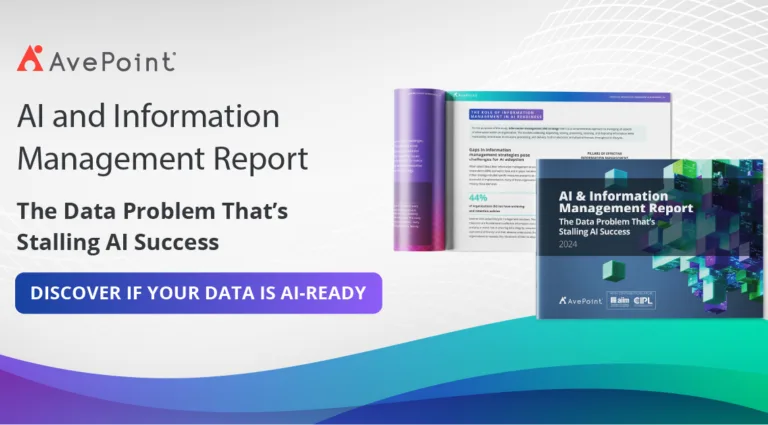As the 2024 Summer Olympics kick off in Paris this week, billions of people around the world will tune in to watch record-breaking performances, but athletic accomplishments are not the only thing that will be on display in Paris. These Olympic Games will also be a stage for technological innovation, showcasing new advancements in many different fields — especially when it comes to AI.
The International Olympic Committee (IOC), the governing body responsible for the games, launched their AI Agenda in 2014, and first made concrete steps to implement AI at the 2020 Olympics (which were, of course, postponed until 2021 in Tokyo due to the coronavirus pandemic). In Tokyo, the Olympics featured computer-vision cameras to help global audiences receive near real-time stats about athletic performances (using video footage combined with historical data from previous competitions to produce on-screen stats) even before commentators. And for athletes, AI was used to gather datapoints from wearable gadgets like smartwatches and sensors to measure heart rate, lung capacity and movement. This helped athletes create specific recovery and nutrition plans for athletes competing on multiple days.
In the Paris 2024 games, the impact of AI will be unmatched, affecting many facets of the highly anticipated games. Here’s how:
Enhanced Athlete Performance Data:
To be the best in their respective sports, most athletes and their teams have been relying on machine learning and AI for years. At this year’s Olympics, they will have access to even more data from training sessions and past performances (ingested from video footage at the games and analyzed using AI algorithms) to adjust based on the atmosphere, competition and other variables. In addition, optimal training, nutrition and recovery strategies will be recommended to each athlete confidentially. Similarly, biomechanical analysis (AI-powered video tools) will dissect an athlete's movement patterns to identify areas for improvement in technique, efficiency, and power output — all of which can help them reach medal status.
Unparalleled Fan Experience:
This year, the Olympic Broadcasting Services will use AI to automatically generate highlights, trained on the Intel Geti platform, to create tailored highlights across multiple events and distribute them to fans instantly, keeping them as close to the games as possible. This will enable broadcasters to bring more customized digital content to viewers faster than ever and focus on their on-the-ground reporting.
Additionally, NBC will use AI software to recreate sportscaster Al Michaels' voice to deliver daily recaps of the Summer Games for Peacock subscribers of its Peacock streaming platform. A new tool, called “Your Daily Olympic Recap on Peacock,” will offer viewers 10-minute highlights packages, which can include events updates, athlete back stories, and other related content personalized by subscriber preferences like which sports, athletes or countries fans are interested in.
Necessary Social Media Protection:
For athletes, social media platforms are incredible for connecting them with fans, but unfortunately violence and harassment are inescapable online. That’s why the IOC developed an AI-powered monitoring system available to cover 15,000 athletes and more than 2,000 officials at the Olympic Games.
Specifically, AI technology will be used to protect athletes from negative, racist and abusive comments on social media during the 2024 Summer Olympics. Every athlete's social media will be monitored for hate comments, with AI technology promptly removing them before athletes can see them or before proliferating further. The goal is to create a positive and supportive environment, free from online harassment and negativity for athletes so they can focus on their performance and enjoy their Olympic experience.
Potential Risks and Preventative Governance:
Even though the IOC is using AI to improve the games for everyone, organizers are also weary of the negative impacts of technology, and leaders are nervous that militant attacks or AI-generated fake images could derail the Olympics, risking event cancellations and severe financial losses. In fact, there were 450 million attempted cyber-attacks during the 2020 Tokyo Olympics, and while all were prevented, the global average cost of a successful cyber-attack is $4.4 million; this represents a significant expense for any organization. The recent CrowdStrike-related IT outage — which brought critical economic activities and services to a halt worldwide, including many canceled flights, hospital outages, and disruption to digital work — highlights the importance of preventative governance when it comes to limiting this sort of risk. Without a sophisticated plan in place, organizations like the IOC will expose themselves to lost profits, fines, legal liabilities, reputational damage, and more.
That’s why the IOC has a governance and oversight framework to identify and mitigate risk this year. According to organizers, this will be a continuous process that will tap into the experience of prominent experts around the world, including French authorities, global cybersecurity leaders, and IT partners. AI will be used to provide real-time monitoring for the entire Olympic digital ecosystem, and Olympic employees will be trained to avoid phishing scams and ethical hackers deployed to discover vulnerabilities.
Ultimately, this year’s games will be an exciting time. We’ll see athletes defy the limits of human potential, inspiring us all — and we’ll also see the output of technologists’ potential, pushing the boundaries of what’s possible.





